Mobile, house call, and location based services
Chicago, IL and surrounding suburbs
How Canine Rehab
treats IVDD
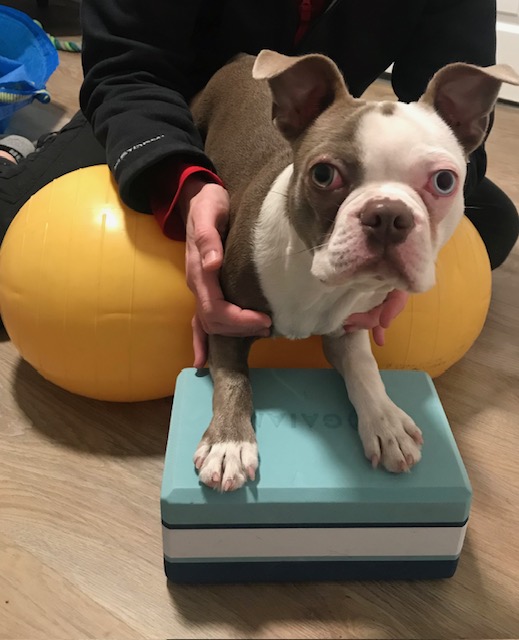
Introduction to IVDD
You may have been introduced to IVDD in a vet hospital ER after your pet suddenly lost the ability to walk. Maybe it’s your first night home after surgery or you opted for conservative care and crate rest.
Now that you’re home you have so many questions. . . How do I hold my pet? What does crate rest mean? How can I help my pet get outside to potty? Or my dog hasn’t gone pee since we’ve been home. What do I do? So many questions about your beloved pet, your heart and soul.
Or you may have a senior pet who has chronic IVDD. You managed episodes in the past with medication and rest. But as your pet gets older, you want to be proactive and not just hold your breath in between episodes. You’re wondering if there is anything else that you can do? The answer is yes. Absolutely.
Whether your dog has been newly diagnosed or has chronic IVDD, we can help with all stages including conservative care, post op rehab, lifestyle management, and equipment needs.
Our “home help visits” can be invaluable to bridge the time between when your pet first comes home (whether conservative management or post op rehab) and when rehab begins.
In addition to providing one on one canine rehabilitation treatments, our goal is to educate and support you in all areas that will impact your pet’s daily life including bladder and bowel expression and management, home set up, equipment recommendations, and more.
We understand it can be stressful when your pet receives a neurologic diagnosis. I recently had a phone call with a prospective client whose pup had just lost the use of his rear legs. We talked about the different challenges she was facing, strategies to help. . . and at the end of our conversation, she said, “you’ve given me hope”. This is always our goal.
What is IVDD?
IVDD stands for intervertebral disc disease. To understand IVDD, it helps to understand the anatomy of the dog. The intervertebral disc is a cushion that lies between each of the bones that make up a dog’s spine from the neck to the base of the tail.
The disc is made up of two parts, the outer rings, and the inner nucleus filled with jelly like material. Some people like to compare a disc to a jelly doughnut with jelly filling.
In certain breeds, the jelly like material begins to harden, at an earlier age than other breeds. This hardening causes the inner jelly material to push through the outer rings and puts pressure on the spinal cord. This is a Type I Hansen disc protrusion. Clinical signs typically seem to occur suddenly and progress quickly. These types of changes may be reported to appear after a jump off a couch or stair climbing for example. This situation is similar to “the straw that broke the camel’s back” as changes in the disc material have been ongoing.
A second type of disc disease results from chronic changes to the outer rings of the disc, making them thicker and eventually causing spinal cord compression. Signs are usually slow and happen over a longer period of time. This Type II Hansen disc is usually seen in older, larger breeds.
Treatment
It is imperative to seek immediate veterinary care at the
first sign of a suspected IVDD episode. Depending on the stage of IVDD, your veterinarian may prescribe rest and
medication (conservative care) or may refer you to a specialist. If surgery is recommended, advanced tests may be recommended before surgery.
Whether your pet is treated conservatively or with surgery,
we can help with “Bridge visits", designed to bridge the time between when you first arrive home and when your pet begins rehab treatment. These can help with bowel and bladder
management education, home set up, carrying your pet, positioning your pet, supplies needed and more.
When your pet is ready to begin rehabilitation, initial evaluations and follow up sessions are one on one with a physical therapist.
We have designed treatments for each stage of IVDD, from
classes for breeds that are prone to IVDD (dachshunds, French bulldogs, corgis German shepherds and more), to dogs with chronic IVDD, and everything in between. We hope to provide the solution best tailored to your pet’s IVDD needs.
Although each patient and situation are unique, special considerations that will be addressed when treating your pet with IVDD (or other neurologic issues) include but are not limited to:
Handling your pet
Home Set Up
Supplies and Equipment (helping your pet get around)
Goals of rehabilitation treatment will be established with you,
so we make sure we are focusing on your priorities. Treatments are customized for your pet so that they can return to the activities they love.
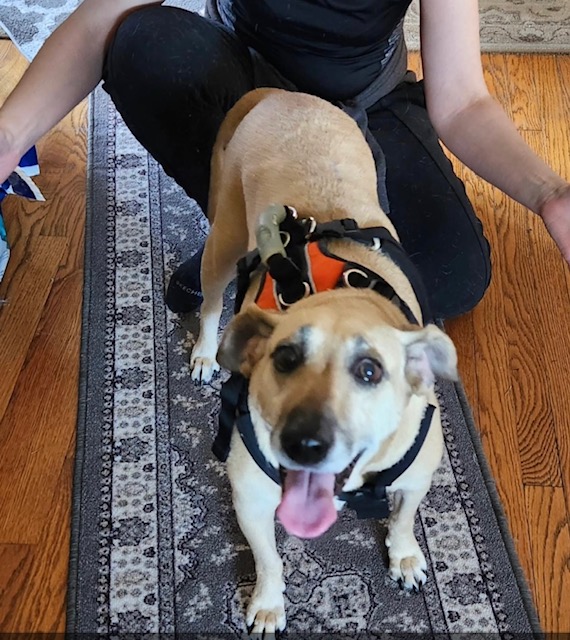
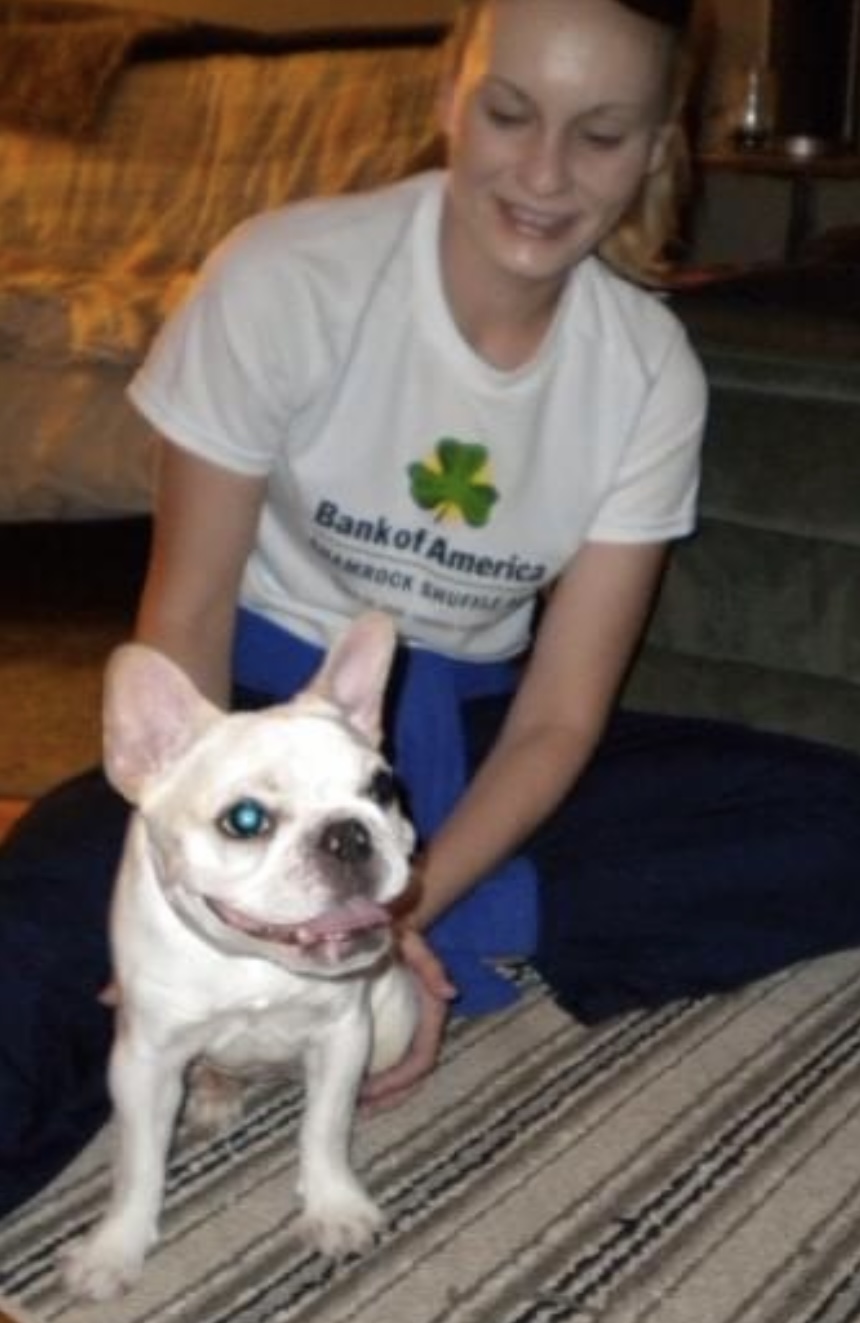
Signs & Symptoms of IVDD in Dogs
Education is your best defense for IVDD so that you may seek out treatment as soon as possible in new cases of IVDD or during a flare up.
Signs and symptoms of an IVDD episode are:
Pain: shivering, reluctance to move, yelping when picked up, not wanting to lower head to drink out of water bowl.
Not knowing where limbs are in space: will not return paws to a corrected position if they are flipped.
Weakness: sinking in the rear legs, difficulty rising to stand, stumbling, uncoordinated.
Complete paralysis: unable to walk.
Complete paralysis with loss of deep pain sensation.
Assistive Devices
The right assistive device can be an asset in your pet’s rehabilitation journey to help them reach their goals and be more mobile along the way.
From supportive harnesses, to splints, orthotics, ramps, strollers, carts, and more, we will help you select and fit the correct piece of equipment to get your pet on the move! Read more on our Carts and Harnesses Page!
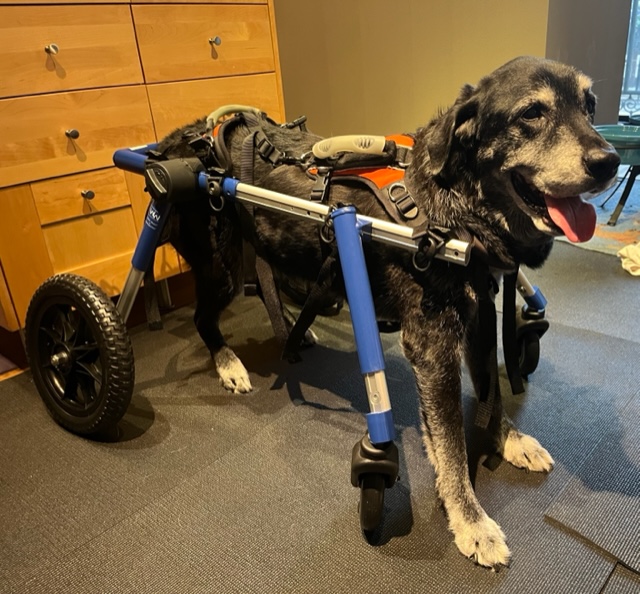
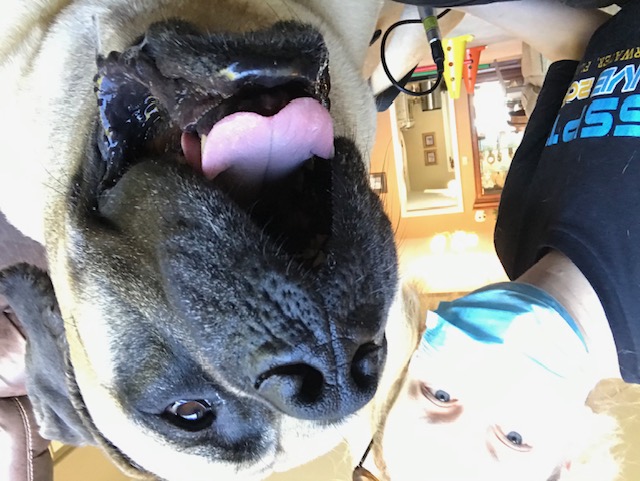
Support - Hope Ambassadors
We realize when your pet receives a diagnosis like IVDD, there may be a lot of unknowns. You may feel alone if people don’t understand the impact of what you and your pet are going through.
In addition to questions about bowel and bladder care, we often hear of people looking for support. So, we’ve assembled “Hope Ambassadors” - pet parents just like yourselves who have gone through similar experiences with their own pets, and can offer firsthand practical advice and support.
Sometimes it just helps to talk to someone who has walked in your shoes. Our ambassadors are amazing pet parents and people, and we couldn’t be more grateful for their willingness to offer a compassionate ear. The right support can be invaluable!
Download your FREE IVDD Guide!
Read some of our IVDD testimonials:
Jeanine is amazing! I fostered a French bulldog for the Chicago French Bulldog Rescue. She was a tough case because she came into the rescue completely paralyzed in her rear with no deep pain reflexes. Her care after the IVDD surgery the rescue paid for was daunting until Jeanine came over. Thanks to Jeanine’s deep expertise and understanding of this type of rehabilitation, the Frenchie built up leg muscles and regained some movement of her rear legs! It was incredible. She is now living her very best life and traveling the country with her two dads who adore her to bits. Jeanine knows more about IVDD rehabilitation than anyone I have met and is a lovely caring person. She is truly a gift. Not sure how to recommend her more highly -best person in Chicago for this.
-Tamara

We started working with Jeanine and Little Steps, Big Strides For Pets after our dog Pickle had complications from a surgery from IVDD Type 2. Jeanine was so patient and kind and gave us so much support and tools to help our pup recover and eventually walk again. Without her help and guidance I don't think our beloved Pickle would have survived. We will always be so grateful for her knowledge, patience and caring attitude. She's truly the best!
-Christine

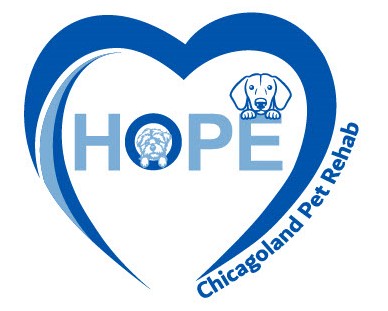
We help animals with mobility impairments and intervertebral disc disease (IVDD) enjoy their favorite activities and routines with you again!
© 2024 Hope Chicagoland Pet Rehab. All Rights Reserved.
